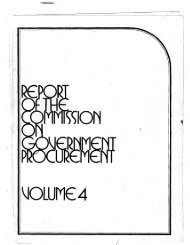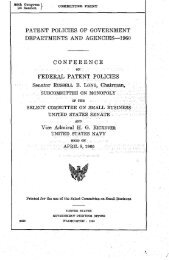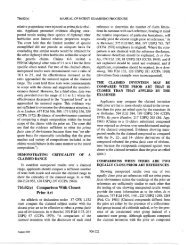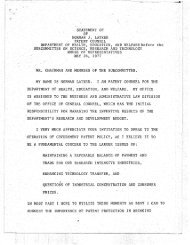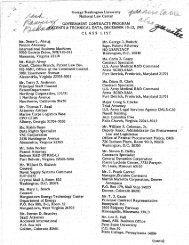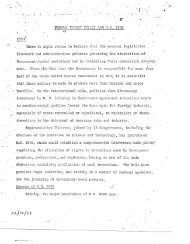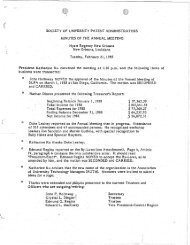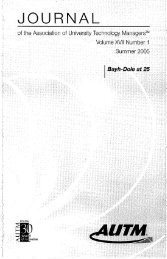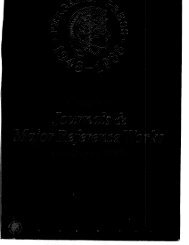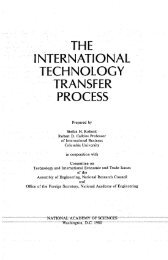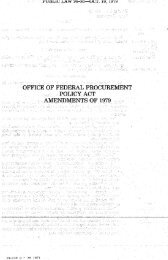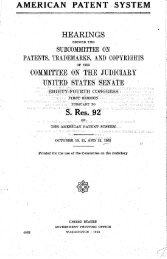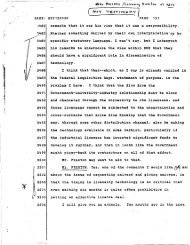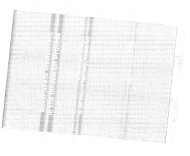The Subject Patent Already Has Underlining or ... - Bayhdolecentral
The Subject Patent Already Has Underlining or ... - Bayhdolecentral
The Subject Patent Already Has Underlining or ... - Bayhdolecentral
You also want an ePaper? Increase the reach of your titles
YUMPU automatically turns print PDFs into web optimized ePapers that Google loves.
1875 MANUAL OF PATENT EXAMINING PROCEDURE<br />
(3) If applicant fails to restrict the claims <strong>or</strong> pay additionalfees<br />
within thetimelimit set f<strong>or</strong>reply, theInternational Preliminary<br />
Examining Auth<strong>or</strong>ity will issue a written opinionand/<strong>or</strong><br />
establish an international preliminary examination rep<strong>or</strong>t on the<br />
main invention and shall indicate the relevant facts in the said<br />
rep<strong>or</strong>t. In case of any doubt as to which invention is the main<br />
invention, the inventionfirst mentioned in the claims and previously<br />
searched by an International Searching Auth<strong>or</strong>ity shall be<br />
considered the maininvention.<br />
(c) Lack ofunity of invention may be directly evident bef<strong>or</strong>e<br />
considering the claims in relation to any pri<strong>or</strong> art, <strong>or</strong> after taking<br />
the pri<strong>or</strong> art into consideration, as where a document discovered<br />
during the search showsthe invention claimedin a generic <strong>or</strong>linking<br />
claim lacksnovelty<strong>or</strong> is clearlyobvious,leaving two <strong>or</strong>m<strong>or</strong>e<br />
claims joinedthereby without a common inventive concept. In<br />
such a case the International Preliminary Exaniining Auth<strong>or</strong>ity<br />
mayraisetheobjection of lack of unityof invention.<br />
<strong>The</strong> examiner will usually begin the preliminary<br />
examination by checking the international application<br />
f<strong>or</strong> unity of invention. <strong>The</strong> international preliminary<br />
examination will only be directed to inventions which<br />
have been searched by the International Searching<br />
Auth<strong>or</strong>ity. All claims directed to inventions which<br />
have not been searched by the International Searching<br />
Auth<strong>or</strong>ity will not be considered by the International<br />
Preliminary Examining Anth<strong>or</strong>ity. If the examiner in<br />
the International Preliminary Examining Auth<strong>or</strong>ity<br />
finds lack of nnity of invention in the claims to be<br />
examined, an invitation is n<strong>or</strong>mally prepared and sent<br />
to the applicant requesting the payment of additional<br />
fees <strong>or</strong> the restriction of the claims on F<strong>or</strong>m PCT/<br />
IPEN405. Such an invitation will inclnde the identification<br />
of what the examiner considers to be the "main<br />
invention" which will be examined if no additional<br />
fees are paid <strong>or</strong> restriction is made by the applicant.<br />
<strong>The</strong> procednre bef<strong>or</strong>e the International Preliminary<br />
Examining Auth<strong>or</strong>ity regarding lack of unity of<br />
invention is governed by PCT Article 34(3)(a)<br />
through (c), PCT Rule 68 (see also PCT Rule 70.13),<br />
and 37 CPR 1.475 and 1.488. It should be noted that<br />
in most instances lack ofunity of invention will have<br />
been noted and rep<strong>or</strong>ted upon by the International<br />
Searching Auth<strong>or</strong>ity which will have drawn up an<br />
International Search Rep<strong>or</strong>t based on those parts of<br />
the international application relating to the invention,<br />
<strong>or</strong> unified linked group of inventions, first mentioned<br />
in the claims ("main invention")-.If the applicant has<br />
paid additional search fees, additional inventions<br />
would also have been searched. No international preliminary<br />
examination will be conducted on inventions<br />
August 2001<br />
1800-100<br />
not previously searched by an International Searching<br />
Anth<strong>or</strong>ity (37 CFR 1.488(b)(2».<br />
Unity of invention must be addressed within 7 days<br />
from the date the PCT application is charged to the<br />
Technology Center from the PCT International Application<br />
Processing Division. This simply means that a<br />
determination must be made as to whether <strong>or</strong> not the<br />
international application relates to one invention <strong>or</strong> to<br />
a group of inventions so linked as to f<strong>or</strong>m a single<br />
general inventive concept.<br />
If it is determined that the international application<br />
does meet the requirements f<strong>or</strong> unity of invention and<br />
no additional fees will be requested, the international<br />
application must be returned to the Paralegal Specialist<br />
<strong>or</strong> Legal Instruments Examiner in the Technology<br />
Center so that an indication to that effect may be made<br />
on the PALM System which monit<strong>or</strong>s deadlines such<br />
as the deadline f<strong>or</strong> checking unity of invention.<br />
If the examiner determines that unity of invention is<br />
lacking, there are two options:<br />
(A) <strong>The</strong> examiner may conduct an international<br />
preliminary examination covering all the claimed and<br />
previously searched inventions and indicate that unity<br />
of invention is lacking and specify the reasons theref<strong>or</strong><br />
without extending an invitation to restrict <strong>or</strong> pay<br />
additional fees (PCT Rule 68.1), <strong>or</strong><br />
(B) <strong>The</strong> examiner may invite the applicant to<br />
restrict the claims, so as to comply with the requirement,<br />
<strong>or</strong> pay additional fees, pointing out the categ<strong>or</strong>ies<br />
of invention found. <strong>The</strong> invitation to restrict <strong>or</strong><br />
pay additional fees shall state the reasons f<strong>or</strong> which<br />
the international application is considered as not complying<br />
with the requirement of unity of invention.<br />
(pCT Rule 68.2). Inventions not previously searched<br />
will not be considered <strong>or</strong> included in the invitation.<br />
<strong>The</strong> written opinion, if any, and the international<br />
preliminary examination rep<strong>or</strong>t must be established<br />
on all inventions f<strong>or</strong> which examination fees have<br />
been paid.<br />
If the applicant fails to reply to the invitation to<br />
restrict the claims <strong>or</strong> pay additional examination fees<br />
due to lack of unity of invention, the written opinion<br />
and international preliminary examination rep<strong>or</strong>t must<br />
be established on the claims directed to what appears<br />
to be the main invention (PCT Article 34(3)(c». <strong>The</strong><br />
main invention, in case of doubt, is the first claimed<br />
invention f<strong>or</strong> which an international search rep<strong>or</strong>t has



